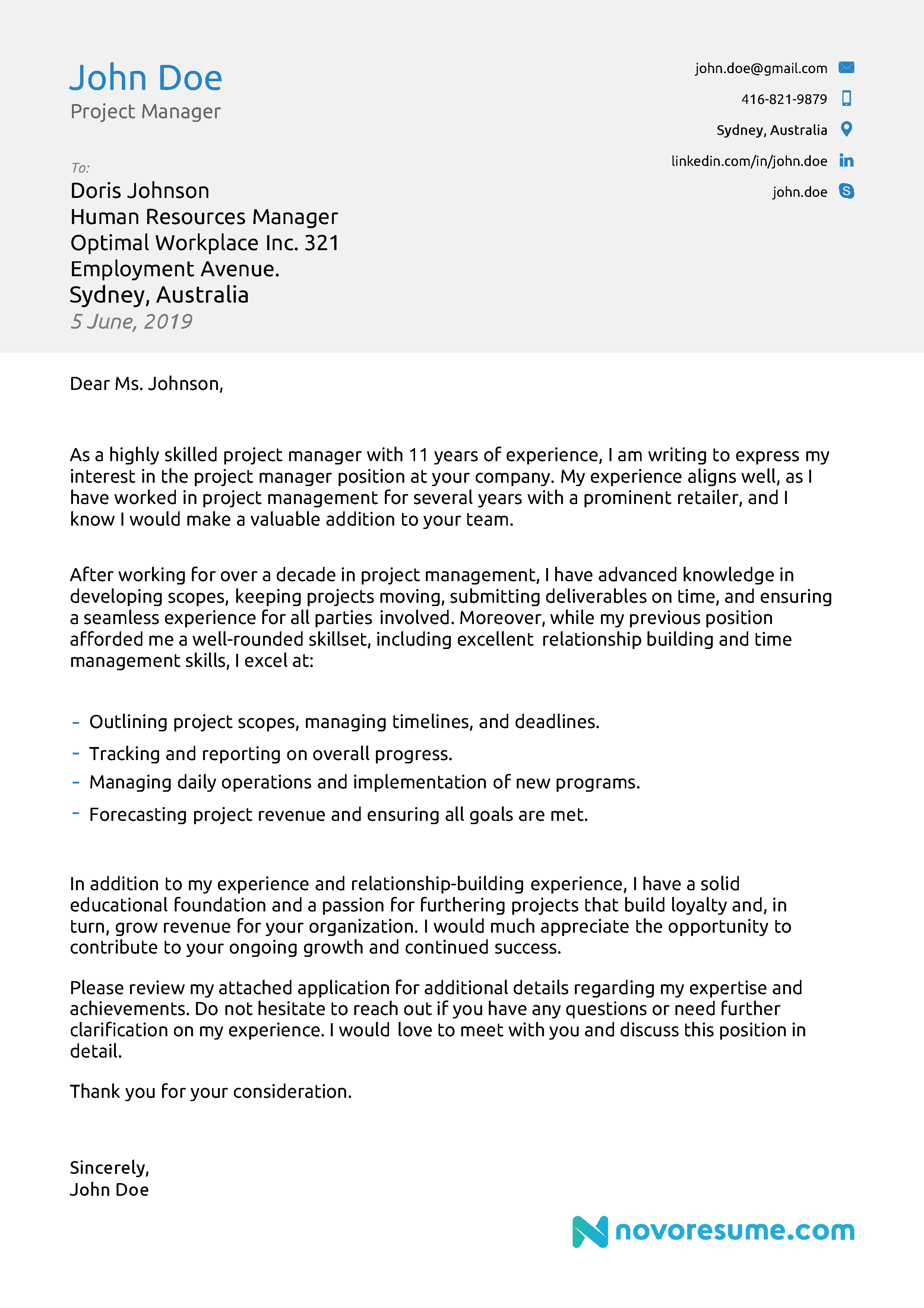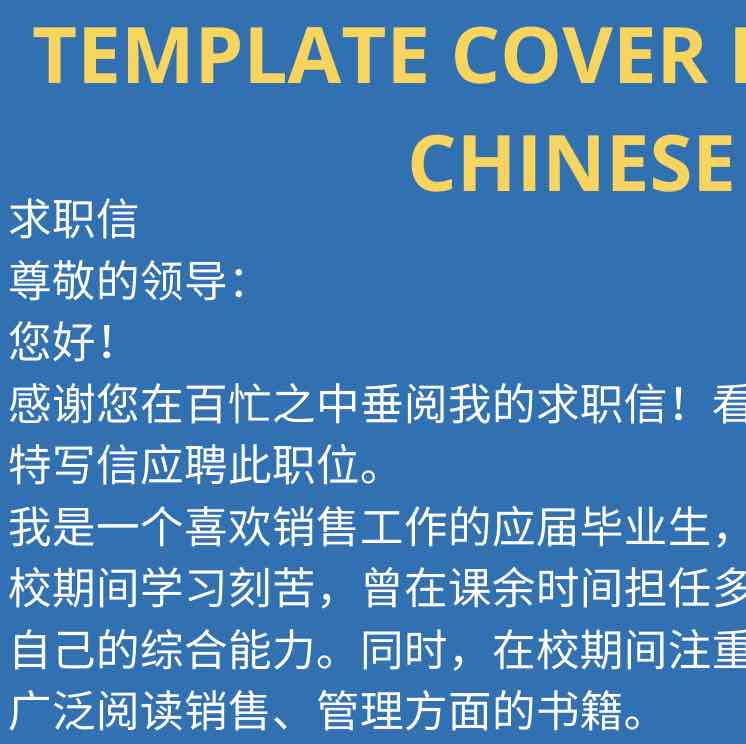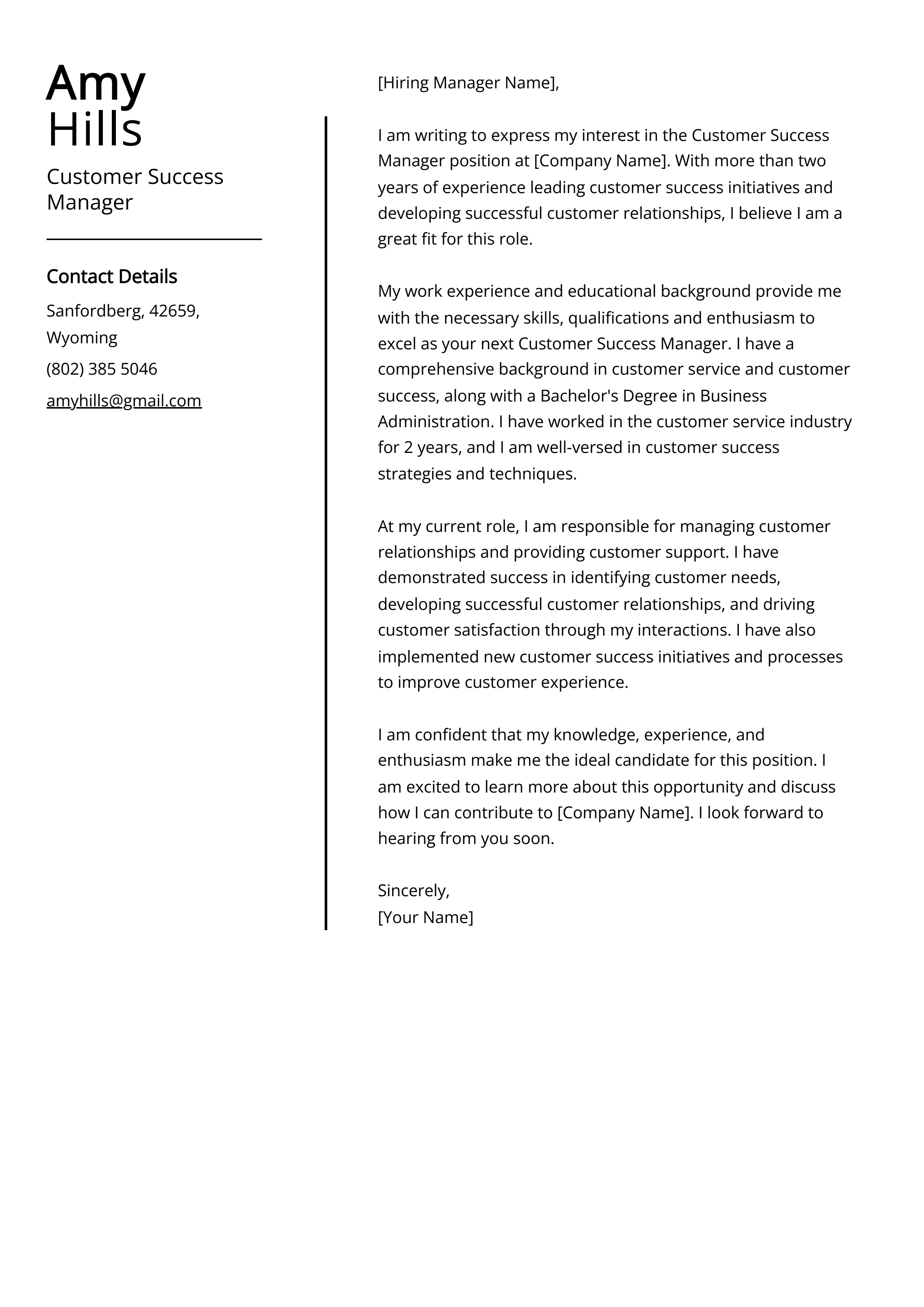Cover Letter in Chinese How To Write (The Winning) One?
Writing a compelling cover letter in Chinese can significantly boost your chances of landing a job in a competitive market. Unlike Western-style cover letters, Chinese applications emphasize respect, humility, and cultural nuances. A winning cover letter should highlight your qualifications while aligning with local expectations, such as formal language and a structured format. Understanding key phrases, proper etiquette, and employer expectations is essential to make a strong impression. This guide will walk you through the steps to craft an effective Chinese cover letter, from formatting to tone, ensuring you stand out in the hiring process and increase your opportunities in the Chinese job market.
Cover Letter in Chinese: How To Write (The Winning) One?
Writing a winning cover letter in Chinese requires a deep understanding of cultural nuances, professional etiquette, and language precision. Unlike Western cover letters, Chinese employers expect a more formal and humble tone, along with clear career objectives and company-specific references. Below, we break down the key components of crafting an effective Chinese cover letter that stands out.
1. Understanding the Chinese Business Culture
In China, respect and hierarchy play a crucial role in professional communication. Your cover letter should reflect humility while showcasing your skills and achievements. Avoid sounding overly confident; instead, use modest language and emphasize your willingness to learn and contribute to the company.
See AlsoHow I used a notebook to learn more Chinese, and why you should too| Key Aspect | Why It Matters |
|---|---|
| Formal Greetings | Shows respect to the recipient |
| Humble Tone | Aligns with Chinese cultural expectations |
| Company Research | Demonstrates genuine interest |
2. Structuring Your Chinese Cover Letter
A well-structured Chinese cover letter follows a logical flow:
- Header (Your contact details)
- Salutation (Respectful greeting)
- Introduction (Brief self-introduction)
- Body (Skills, experience, and company alignment)
- Closing (Polite ending and call to action)
| Section | Content |
|---|---|
| Header | Name, phone, email, LinkedIn (if applicable) |
| Salutation | 尊敬的 [Hiring Manager's Name] (Respected...) |
| Body | Relevant skills, achievements, and company fit |
3. Essential Phrases to Use in a Chinese Cover Letter
Using appropriate phrases helps convey professionalism. Some key phrases include:
- 我非常荣幸申请... (I am honored to apply for...)
- 我相信我的技能... (I believe my skills...)
- 期待您的回复 (Looking forward to your reply)
| Phrase | When to Use |
|---|---|
| 尊敬的... | Opening salutation |
| 感谢您考虑... | Closing gratitude |
| 我期待有机会... | Expressing enthusiasm |
4. Common Mistakes to Avoid
Many applicants make errors that hurt their chances. Avoid:
- Overly casual language
- Exaggerating achievements
- Ignoring company values
- Poor formatting
| Mistake | Solution |
|---|---|
| Using slang | Stick to formal language |
| Long paragraphs | Keep it concise |
| Generic content | Customize for each job |
5. Tailoring Your Cover Letter for Different Industries
Different industries in China have unique expectations:
- Finance: Emphasize precision and analytical skills
- Tech: Highlight innovation and technical expertise
- Education: Show patience and communication skills
| Industry | Focus Area |
|---|---|
| Finance | Accuracy, certifications, experience |
| Tech | Projects, coding languages, problem-solving |
| Education | Teaching methods, student engagement |
How do you write a winning cover letter?

Understanding the Purpose of a Cover Letter
A winning cover letter serves as your introduction to a potential employer, highlighting why you are the best fit for the role. It should complement your resume by providing context and showcasing your personality. Key elements include:
See AlsoDuolingo Classroom Code: Free Teacher & Student Setup Guide 2025- Tailoring the letter to the specific job and company.
- Demonstrating how your skills align with the job requirements.
- Conveying enthusiasm for the position and organization.
Structuring Your Cover Letter Effectively
A well-structured cover letter ensures clarity and professionalism. Follow this format for maximum impact:
- Header: Include your contact information and the date.
- Salutation: Address the hiring manager by name if possible.
- Opening paragraph: State the position you're applying for and grab attention.
- Body paragraphs: Highlight relevant skills and achievements.
- Closing paragraph: Express gratitude and include a call to action.
Highlighting Relevant Skills and Achievements
To stand out, focus on quantifiable achievements and skills that match the job description. Avoid repeating your resume; instead, provide deeper insights:
- Use specific examples of past successes.
- Incorporate keywords from the job posting.
- Showcase soft skills like teamwork or leadership.
Personalizing Your Cover Letter
A generic cover letter will fail to impress. Personalization is key to making a connection:
- Research the company to understand its values and needs.
- Mention why you’re excited about the role or organization.
- Reference mutual connections if applicable.
Polishing and Proofreading Your Cover Letter
Errors can undermine your credibility. Ensure your cover letter is flawless and professional:
- Proofread multiple times for grammar and spelling mistakes.
- Keep it concise—ideally one page or less.
- Use a professional tone while maintaining authenticity.
How to write a Chinese cover letter?

Understanding the Structure of a Chinese Cover Letter
A Chinese cover letter follows a specific structure that aligns with cultural expectations. Unlike Western cover letters, it often emphasizes formality and respect for hierarchy. Here’s how to structure it:
- Header: Include your name, contact details, and the date.
- Salutation: Address the recipient formally, using their title if known.
- State the position you’re applying for and how you learned about it.
- Body: Highlight your qualifications and align them with the job requirements.
- Closing: Express gratitude and include a polite request for an interview.
Key Cultural Nuances to Consider
Writing a Chinese cover letter requires awareness of cultural norms. Modesty and harmony are highly valued, so avoid sounding overly boastful. Key points to remember:
- Respectful tone: Use formal language and honorifics.
- Indirect communication: Avoid being too direct; imply your strengths subtly.
- Company research: Show familiarity with the company’s values and goals.
Essential Content to Include
Your Chinese cover letter must contain specific elements to stand out. Focus on relevance and clarity while adhering to expectations. Include:
- Career objectives: Briefly state your professional goals.
- Relevant experience: Emphasize roles and achievements that match the job.
- Education: Highlight degrees or certifications, especially from prestigious institutions.
- Soft skills: Mention teamwork, adaptability, or other valued traits.
Common Mistakes to Avoid
Many applicants make errors that weaken their Chinese cover letter. Avoid these pitfalls to ensure professionalism:
- Overly casual language: Slang or informal phrases are inappropriate.
- Exaggeration: Claims without evidence may seem dishonest.
- Ignoring formatting: Use a clean, organized layout with proper spacing.
- Generic content: Tailor each letter to the specific job and company.
Tips for Proofreading and Polishing
A flawless Chinese cover letter demonstrates attention to detail. Follow these steps to refine your draft:
- Grammar check: Ensure no spelling or syntax errors exist.
- Consistency: Verify uniform font, spacing, and alignment.
- Peer review: Ask a native speaker to review for cultural appropriateness.
- Conciseness: Trim unnecessary words to keep it focused.
How to write a success cover letter?

Understanding the Purpose of a Cover Letter
A successful cover letter introduces you to the employer, highlights your qualifications, and explains why you're the best fit for the job. It should complement your resume, not repeat it. Key elements include:
- Personalization: Address the hiring manager by name if possible.
- Relevance: Tailor the content to the specific job and company.
- Clarity: Keep it concise—no more than one page.
Structuring Your Cover Letter Effectively
A well-structured cover letter ensures your message is clear and professional. Follow this format:
- Header: Include your contact information and the date.
- Salutation: Use a formal greeting like Dear [Hiring Manager's Name].
- Body: Split into an introduction, middle paragraph(s), and closing.
Writing a Strong Opening Paragraph
The first paragraph should grab the reader's attention and state your purpose. Here’s how:
- Mention the job: Specify the position you're applying for.
- Show enthusiasm: Express genuine interest in the role.
- Highlight a key achievement: Briefly state a relevant accomplishment.
Highlighting Your Skills and Experience
The middle paragraph(s) should showcase your qualifications. Focus on:
- Relevant skills: Align your abilities with the job requirements.
- Specific examples: Use metrics or results to demonstrate impact.
- Company fit: Explain how your values align with the organization.
Closing Your Cover Letter Professionally
End your cover letter on a strong note with these steps:
- Restate interest: Reaffirm your enthusiasm for the role.
- Call to action: Invite the employer to contact you.
- Professional sign-off: Use Sincerely or Best regards followed by your name.
How do you end off a letter in Chinese?

Common Chinese Letter Closing Phrases
In Chinese letters, the closing phrase often reflects respect and politeness. Here are some widely used examples:
- 此致敬礼 (Cǐ zhì jìng lǐ) - A formal closing meaning With best regards.
- 祝好 (Zhù hǎo) - A casual yet polite way to say Best wishes.
- 敬祝安康 (Jìng zhù ān kāng) - A respectful wish for good health and peace.
Formal vs. Informal Closings in Chinese Letters
The tone of your closing depends on the relationship with the recipient. Below are key differences:
- Formal: Use 谨上 (Jǐn shàng) or 敬上 (Jìng shàng) for superiors or elders.
- Semi-formal: 祝工作顺利 (Zhù gōngzuò shùnlì) (Wishing you success at work) suits colleagues.
- Informal: For friends, 拜拜 (Bàibài) (Bye) or 下次聊 (Xià cì liáo) (Talk next time) works.
Cultural Nuances in Chinese Letter Endings
Understanding cultural context ensures appropriateness. Consider these points:
- Hierarchy matters: Higher-status recipients demand more respectful closings.
- Avoid over-familiarity: Casual closings with strangers may seem rude.
- Seasonal closings: Use 新年快乐 (Xīnnián kuàilè) (Happy New Year) during holidays.
Business Letter Closings in Chinese
Professional correspondence requires specific phrases. Common options include:
- 顺颂商祺 (Shùn sòng shāng qí) - Wishing business prosperity.
- 此致谢意 (Cǐ zhì xiè yì) - Expressing gratitude formally.
- 盼复 (Pàn fù) - A polite Looking forward to your reply.
How to Sign Off After the Closing Phrase
The signature format follows strict conventions in Chinese letters:
- Your name comes after the closing, often with 敬上 (Jìng shàng) below.
- Add titles like 经理 (Jīnglǐ) (Manager) if relevant.
- Date placement: Write it below your name, formatted as YYYY年MM月DD日.
Frequently Asked Questions (FAQ)
What is the purpose of a cover letter in Chinese job applications?
A cover letter in Chinese job applications serves as a formal introduction to your resume, highlighting your qualifications, experiences, and motivation for applying. Unlike Western cover letters, Chinese cover letters often emphasize respect for hierarchy and cultural nuances, such as addressing the recipient with proper titles. It also provides an opportunity to showcase your understanding of Chinese business etiquette, which can significantly impact your chances of landing an interview.
How should I structure a winning Chinese cover letter?
A winning Chinese cover letter typically follows a three-part structure: an introduction (including a formal greeting and your purpose for writing), the body (highlighting your skills, achievements, and alignment with the company's values), and a conclusion (expressing gratitude and a call to action). It's crucial to use polite language and avoid excessive self-promotion, as humility is highly valued in Chinese culture. Additionally, keeping it concise (one page or less) is recommended.
What cultural nuances should I consider when writing a Chinese cover letter?
When writing a Chinese cover letter, it's essential to incorporate cultural nuances such as using formal titles (e.g., 尊敬的经理 - Respected Manager) and avoiding direct or overly casual language. Emphasize teamwork and loyalty, as these traits are highly regarded in Chinese workplaces. Additionally, subtly aligning your goals with the company's mission can demonstrate your commitment. Avoid controversial topics and focus on harmony and mutual benefit.
Should I write my Chinese cover letter in English or Chinese?
The language of your cover letter depends on the job requirements. If the position requires English proficiency, submitting it in English may be acceptable. However, writing it in Chinese demonstrates respect for the local culture and can set you apart from other candidates. If you're not fluent, consider hiring a professional translator to ensure accuracy and avoid mistakes. Always verify the company's preferences, as some multinational firms may accept either language.
Leave a Reply

Related Posts